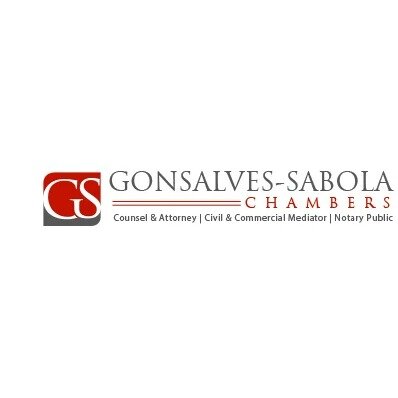Best Probate Lawyers in Nassau
Share your needs with us, get contacted by law firms.
Free. Takes 2 min.
List of the best lawyers in Nassau, Bahamas
About Probate Law in Nassau, Bahamas
Probate in Nassau, Bahamas refers to the legal process of validating a deceased person's will and distributing their assets according to the instructions outlined in the will. This process ensures that the deceased's assets are distributed fairly and in accordance with the law.
Why You May Need a Lawyer
There are several situations where you may need a lawyer to assist you with probate in Nassau, Bahamas. Some common scenarios include: interpreting a complex will, resolving disputes among beneficiaries, handling challenges to the will's validity, dealing with creditors, and navigating the probate process efficiently.
Local Laws Overview
In Nassau, Bahamas, the Succession Act governs matters related to probate and estate administration. Some key aspects of the local laws that are particularly relevant to probate include the requirement for a valid will, the appointment of an executor, the distribution of assets according to the will, and the settlement of debts and taxes.
Frequently Asked Questions
1. What is probate?
Probate is the legal process of validating a deceased person's will and distributing their assets according to the instructions in the will.
2. Do all estates go through probate in Nassau, Bahamas?
No, not all estates go through probate. Some assets may pass outside of probate, such as jointly owned property or assets with designated beneficiaries.
3. Can I challenge a will in Nassau, Bahamas?
Yes, you can challenge a will in Nassau, Bahamas if you have valid grounds, such as undue influence, lack of capacity, or fraud.
4. How long does the probate process take in Nassau, Bahamas?
The probate process in Nassau, Bahamas can vary depending on the complexity of the estate and any disputes that may arise. It can take several months to a year or more to complete.
5. Do I need a lawyer for probate in Nassau, Bahamas?
While you are not required to have a lawyer for probate, it is highly recommended, especially if the estate is complex or if disputes are anticipated.
6. What are the duties of an executor in Nassau, Bahamas?
An executor is responsible for managing the deceased person's estate, including collecting assets, paying debts, and distributing assets according to the will.
7. How are assets distributed if there is no will in Nassau, Bahamas?
If there is no will, the deceased person's assets will be distributed according to the laws of intestacy in Nassau, Bahamas, which typically prioritize spouses, children, and other close relatives.
8. Are estate taxes applicable in Nassau, Bahamas?
Nassau, Bahamas does not have an inheritance or estate tax, but there may be other taxes, such as real property tax or stamp duty, that apply to the estate.
9. Can I make changes to a will after someone has passed away?
No, you cannot make changes to a will after someone has passed away. Any changes would need to be made prior to the person's death.
10. How can I find a probate lawyer in Nassau, Bahamas?
You can find a probate lawyer in Nassau, Bahamas by asking for recommendations, conducting online research, or contacting the Bar Association of The Bahamas for a referral.
Additional Resources
For additional resources related to probate in Nassau, Bahamas, you may consider reaching out to The Bahamas Bar Association or The Bahamas International Probate Registry for guidance and support.
Next Steps
If you require legal assistance with probate in Nassau, Bahamas, the next steps would be to contact a qualified probate lawyer to discuss your specific situation and determine the best course of action. Be prepared to provide relevant documents, such as the deceased person's will, and any other information related to the estate.
Lawzana helps you find the best lawyers and law firms in Nassau through a curated and pre-screened list of qualified legal professionals. Our platform offers rankings and detailed profiles of attorneys and law firms, allowing you to compare based on practice areas, including Probate, experience, and client feedback.
Each profile includes a description of the firm's areas of practice, client reviews, team members and partners, year of establishment, spoken languages, office locations, contact information, social media presence, and any published articles or resources. Most firms on our platform speak English and are experienced in both local and international legal matters.
Get a quote from top-rated law firms in Nassau, Bahamas — quickly, securely, and without unnecessary hassle.
Disclaimer:
The information provided on this page is for general informational purposes only and does not constitute legal advice. While we strive to ensure the accuracy and relevance of the content, legal information may change over time, and interpretations of the law can vary. You should always consult with a qualified legal professional for advice specific to your situation.
We disclaim all liability for actions taken or not taken based on the content of this page. If you believe any information is incorrect or outdated, please contact us, and we will review and update it where appropriate.

















